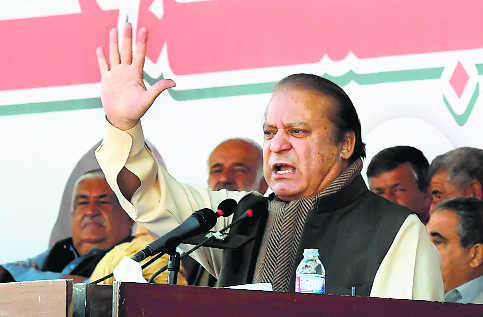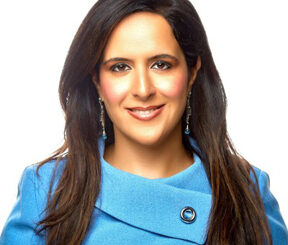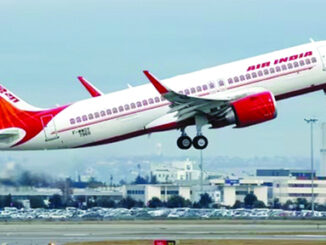

The run-up to the 2018 election bears an eerie similarity to the events preceding the 2013 poll. The actors seeking to destroy Nawaz Sharif’s political future are the same, with the addition of the SC and Hafiz Saeed.
Disqualified from holding the office of Prime Minister last year by the Supreme Court, Nawaz Sharif has now been barred by the same court from being the head of his party, PML (N). Ostensibly a matter of corruption in high places, his disqualification has a strong subtext of civil-military tussle in Pakistan.
As the 2013 Pakistan election approached, the security establishment was concerned at the prospect of a Nawaz victory because of his popularity in Punjab that carries more than 50 per cent seats in the National Assembly. The anxiety stemmed from Nawaz’s tense relationship with his army chiefs during two tenures as Prime Minister, his bitterness against the army at his treatment after the 1999 coup and repeatedly professed desire to promote better relations with India. In 2011, Imran Khan, whose Pakistan Tehreek-e-Insaf had failed to make a mark since its founding in 1996, appeared on the scene out of nowhere to relaunch his political career by opposing American drone strikes in Pakistani territory and corruption in the ruling parties. The then DG, ISI, was reported to be the architect of his sudden rise, a move that subsequent events would prove to be farsighted in filling the gap left by the reluctance of the two major parties — PPP and PML (N) — wiser with the experience of the past, to collaborate with the army against each other. Closer to the election, Tahir ul Qadri, a Canada based cleric of Pakistan origin, landed up to push for its postponement. However, these machinations failed, and Nawaz won a third term with a comfortable majority in the election held in May, 2013.
In this backdrop, the civil-military equation under Nawaz was expected to be anything but smooth. Differences emerged quickly on Musharraf’s trial, policy on terrorism and relations with India. The army managed to secure Musharraf’s exit from Pakistan, prevailed against Nawaz’s misplaced policy of dialogue with the anti-Pak terror groups and systematically undermined his agenda to improve relations with India.
Imran’s agitation against the alleged rigging of the 2013 election, which kept Nawaz on the back foot vis a vis the army, came a cropper when a judicial commission ruled against him in July 2015. However, the linkage of some offshore companies to the Prime Minister’s family, revealed in the Panama papers, gave Imran and his mentors another opportunity to target Nawaz. In July 2017, the Supreme Court disqualified Nawaz from holding public office. Significantly, the decision was based on the report of a six-member joint investigation team, constituted by the court that included a representative each of the ISI and Military Intelligence. Since these highly disciplined individuals would not have approved the report without a nod from the army leadership, the damning report, combined with the track record of the Pakistan judiciary kowtowing to military dictators, had left little doubt about the fate of the Prime Minister and was an indicator of provenance of the decision to oust him.
The run-up to the 2018 election bears an eerie similarity to the events preceding the 2013 election. The actors seeking to destroy Nawaz’s political future are the same, with the addition of the Supreme Court and Pakistan’s terror brand ambassador, Hafiz Saeed. The army would be loath to see his return to power. The PPP has sought to exploit Nawaz’s misfortunes for political gains in Punjab, but being an experienced party, would not go the extent of playing the security establishment’s game. That is not true of Imran. Egged on by his ambition, he is blind to the army’s design. Tahir ul Qadri is again around. The security establishment aims to deprive Nawaz of another victory by undermining him in Punjab. Hafiz Saeed’s services have also been enlisted for good measure by releasing him from preventive detention. Though the Election Commission has not recognized his party, Milli Muslim League, because of opposition of the PML (N) government, he could be expected to put up independent candidates to erode Nawaz’s vote.
Nawaz and his children face charges in an accountability court, with the sword of conviction and imprisonment hanging over their head. Besides depriving him of the presidency of his party, all decisions taken by him in that capacity since July 2017 have also been declared null and void. However, counting on his popularity in Punjab, which he hopes to boost by playing the victim card, Nawaz refuses to desert the field. Attempts to cause any major fissures in his party and wean away his brother, Shahbaz Sharif, have failed so far. Nawaz, being the vote getter, is indispensable to the party. An efficient technocrat, Shahbaz complements Nawaz, but cannot replace him. Deprived of the presidency of PML (N), Nawaz threatens to lead it in the election in his individual capacity in the hope of ruling through a proxy, as he is doing now. If jailed, his loyalists could fight in his name. He thus dares the army to either go the whole hog and stage a coup, inviting international opprobrium, or face the prospect of seeing him rule, even if by proxy.
The selective accountability that has claimed Nawaz’s head not only implies the departure of an individual from office, but can also target every politician, capable of winning popular mandate and consequently inclined to chart out a course independent of the worldview of the army. Nawaz, after all, was disqualified as per a Zia era constitutional amendment requiring elected representatives to be ‘sadiq’ (truthful) and ‘ameen’ (righteous), subjective criteria that can be used by the Deep State to throw out anyone not in agreement with them. The civil-military imbalance and the resulting dysfunctionality of the state that have become a curse for Pakistan and the region will get redressed essentially by opposition within Pakistan to the stranglehold of their army, with external pressure at best playing a supportive role. Therefore, though a matter internal to Pakistan, the ongoing tussle and its outcome should be of interest to us.
(The author is India’s former High Commissioner to Pakistan)





Be the first to comment